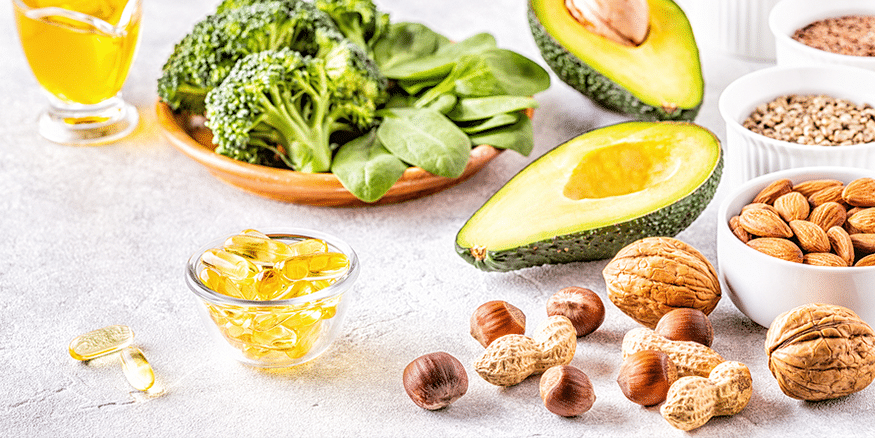
Omega-3 Fatty Acids
Even though omega-3 fatty acids make up only a small amount of the recommended total fat in our diet, they are essential for normal body function. Omega-3 fatty acids are polyunsaturated fatty acids found in varying amounts in our food, including fatty fish, certain plant seed oils, and omega-3 enriched eggs. Flaxseeds (also called linseeds) and flaxseed oil have large amounts of omega-3 fatty acids, while smaller amounts are contained in soybean and canola oils, and the seeds of less common plants such as chia, perilla, black English walnuts, purslane, lingonberry, seabuckthorn, and hemp. Fresh, frozen, or canned fatty, cold-water fish such as salmon, sardines, mackerel, and herring are rich in longer chain omega-3 fatty acids. Omega-3 fatty acids are classified as essential because they cannot be synthesized in the body and must be obtained from food.
Flaxseeds are also the richest source of lignans, a type of phytoestrogen, which may protect against cancer, specifically hormone-sensitive cancers. Canada is currently one of the world leaders in flax production and trade.
If you’ve tried to swallow a huge omega-3 capsule and find this uncomfortable, or if you’ve tried to swallow regular flaxseed oil and didn’t enjoy the taste, then you might want to explore flaxseed oil flavoured with orange. It’s quite palatable and you can take it with a spoon.















